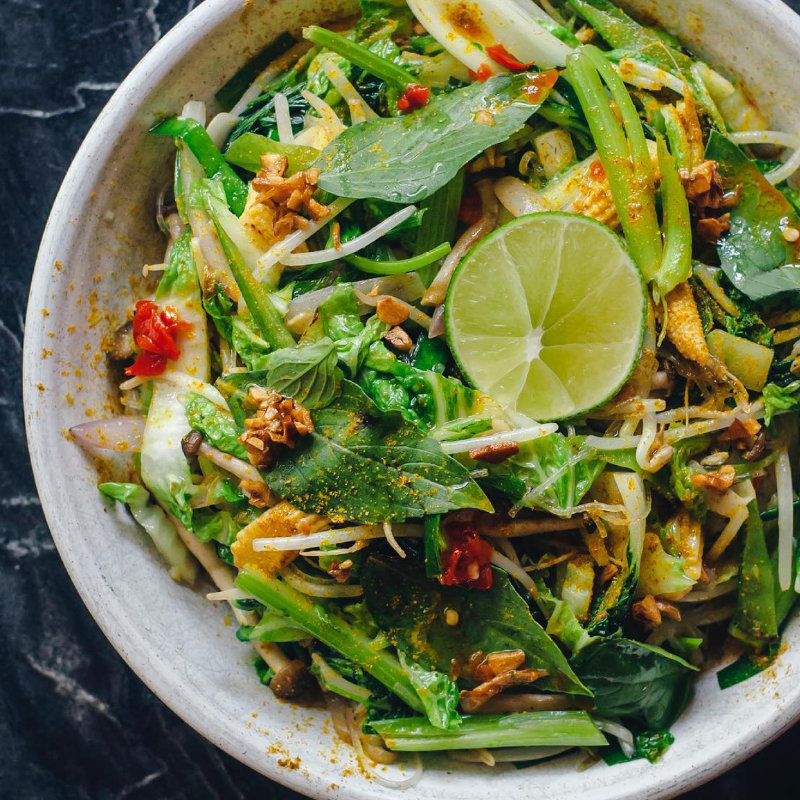Do you dread that certain time of the month? Maybe you struggle with intense cramping, mood swings, bloating, headaches…and the list goes on. Many people have been struggling with these PMS symptoms for years and finally it’s becoming less taboo to talk about. As a naturopathic doctor, I have many clients that are looking for natural ways to ease period pain and reduce cramps. Here are some tips that you can start incorporating today.
What does a regular period look like?
This can vary among each person, but it’s always good to know what a typical period looks like.
A typical period:
-
Is regular and consistent
-
Cycle (first day of your bleed to the next first day) lasts 26 to 32 days
-
May cause a heavy sensation in the lower abdomen, but intense cramping is not
-
Does not clot
-
Has blood colour range from bright red to cranberry color
-
Has bleeding that lasts four to 7 days
So, how can you naturally help ease period pain and reduce cramps?
1. Nutrition
Fibre-rich Foods: Estrogen is excreted from the blood to the liver and through the intestines. If estrogen isn’t excreted properly, this can lead to an excess, which can worsen PMS. A high fibre diet helps the body excrete estrogen as well as prevent the reabsorption of estrogen in the intestines.
Fermented Foods: Fermented foods like kimchi, sauerkraut, yoghurt and tempeh and they can help increase the good bacteria in your gut and the estrobolome. The estrobolome is referred to as the group of bacteria that help to metabolize and modulate estrogen levels.
Cruciferous Vegetables: Cruciferous vegetables like broccoli, kale, and dark leafy greens contain something called DIM. This compound can help with estrogen metabolism! Estrogen is the hormone that helps build your uterine lining. When there is too much it can cause symptoms of sore tender breasts, heavy/ painful periods and bloating.
Increase Anti-inflammatory Foods: Processed and high sugar foods can increase inflammation in the body whereas plant-based foods (veggies, fruit, nuts, seeds, whole grains and legumes) and healthy fats decrease inflammation. Menstrual pain is connected to the amount of inflammatory prostaglandins that are produced. A more plant-based diet will help decrease the inflammation in the body due to it being rich in antioxidants.
2. Regular Exercise and Stress Management
Exercise can help reduce symptoms of anxiety and manage stress levels. High stress is connected to more intense PMS symptoms as it can trigger that “fight or flight” response.
3. Track Your Period
It’s never fun when your period comes when you least expect it! If you aren’t already doing this then I suggest you start by downloading a period tracker app (such as Clue or Flo). This will also allow you to gain more insight into your period, such as your cycle length, estimated ovulation date and most common PMS symptoms.
4. Be Prepared
If you have irregular periods, avoid those “uh oh” moments and period care hacks (a rolled up bunch of toilet paper never does the job properly). Subscription-based period product services, like joni ensure, that you are stocked up on organic and biodegradable pads. This way you are ready to go when your period comes and you have one less thing to worry about!
5. Reduce Exposure to Estrogen Disrupting Chemicals
Estrogen Disrupting Chemicals (EDCs) are environmental toxins that enter into our bloodstream and mimic our hormones. This can lead to increased inflammation and estrogen dominance. Some examples include: plastic bottles, pesticides, metal food cans, cosmetics, detergents and flame-retardant furniture. It’s difficult to avoid all EDCs but the more you know about them, the better you can do to avoid them!
6. Consider Hormone Testing
If you are constantly dealing with PMS then it is possible you may have a hormonal imbalance. Lifestyle factors and nutrition can definitely help you take more control over your period, however, you can always consider hormone testing if you are still struggling with symptoms after making these changes.
References:
-
Anderson, E., & Shivakumar, G. (2013). Effects of exercise and physical activity on anxiety. Frontiers in psychiatry, 4, 27. https://doi.org/10.3389/fpsyt.2013.00027
-
EWG. (2021) Dirty Dozen Endocrine Disruptors. Retrieved from: https://www.ewg.org/research/dirty-dozen-list-endocrine-disruptors
-
Fujioka, N., Ransom, B. W., Carmella, S. G., Upadhyaya, P., Lindgren, B. R., Roper-Batker, A., Hatsukami, D. K., Fritz, V. A., Rohwer, C., & Hecht, S. S. (2016). Harnessing the Power of Cruciferous Vegetables: Developing a Biomarker for Brassica Vegetable Consumption Using Urinary 3,3'-Diindolylmethane. Cancer prevention research (Philadelphia, Pa.), 9(10), 788–793. https://doi.org/10.1158/1940-6207.CAPR-16-0136
-
Haghighatdoost F, Bellissimo N, de Zepetnek JOT, Rouhani MH. Association of vegetarian diet with inflammatory biomarkers: a systematic review and meta-analysis of observational studies. Public Health Nutr. 2017;20:2713-2721.
-
Marion Gluck Clinic (2021) Hormones and Gut Health. Retrieved from: https://www.mariongluckclinic.com/blog/hormones-and-gut-health-the-estrobolome-and-hormone-balance.html#:~:text=The%20estrobolome%20is%20a%20collection,impact%20weight%2C%20libido%20and%20mood.
-
Mnif, W., Hassine, A. I., Bouaziz, A., Bartegi, A., Thomas, O., & Roig, B. (2011). Effect of endocrine disruptor pesticides: a review. International journal of environmental research and public health, 8(6), 2265–2303. https://doi.org/10.3390/ijerph8062265
-
Kollipaka, B. Arounassalame & S. Lakshminarayanan (2013) Does psychosocial stress influence menstrual abnormalities in medical students?, Journal of Obstetrics and Gynaecology, 33:5, 489-493, DOI: 10.3109/01443615.2013.782272
-
Turner-McGrievy GM, Wirth MD, Shivappa N, et al. Randomization to plant-based dietary approaches leads to larger short-term improvements in Dietary Inflammatory Index scores and macronutrient intake compared to diets that contain meat. Nutr Res. 2015;35:97-106.
About the Author

Krista Lowe is a Naturopathic Doctor practicing out of Tall Tree Integrated Health in Victoria, BC. She loves working with her patients to help them better understand their health and its role in providing a better quality of life. She is passionate about period health, hormones, skin and digestive health along with overall health optimization.
